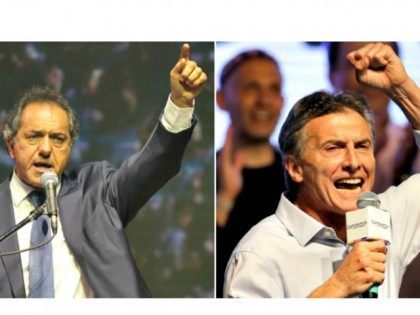Court Revives Corruption Case Against Cristina Fernández de Kirchner, Argentina’s Most Powerful Socialist
A court in Argentina overturned the dismissal of a corruption probe into outgoing Vice President Cristina Fernández de Kirchner.
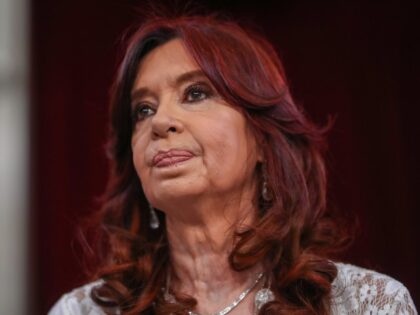
A court in Argentina overturned the dismissal of a corruption probe into outgoing Vice President Cristina Fernández de Kirchner.

Defeated Argentine presidential candidate Patricia Bullrich, who led the main conservative coalition in the country prior to this weekend, endorsed libertarian opponent Javier Milei on Wednesday ahead of the upcoming runoff.
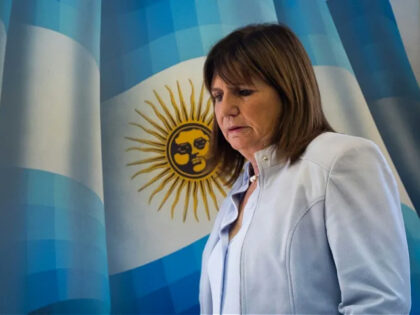
The five candidates in Sunday’s presidential election in Argentina ended their campaigns on Thursday, observing a mandated period of silence beginning on Friday as polls show a tight race at the top.

Peronist Alberto Fernández assumed power as president in Argentina on Tuesday, a return to power for the socialists after predecessor Mauricio Macri failed to stem an economic decline triggered by a decade of leftist rule.
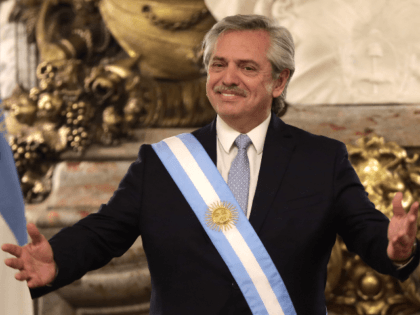
Leftist candidate Alberto Fernández won Argentina’s presidential elections on Sunday, ousting the incumbent Mauricio Macri in a campaign dominated by concerns over the country’s ongoing economic crisis.
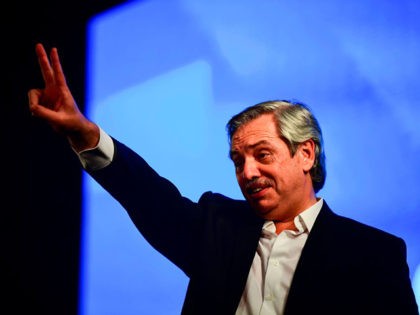
Argentina designated the Iranian proxy organization Hezbollah an “Entity Tied to Acts of Terrorism” this week in anticipation of the anniversary of the 1994 bombing of the Argentine-Israeli Mutual Association (AMIA) headquarters Thursday, at its time the deadliest terrorist attack in the modern history of the Western Hemisphere.
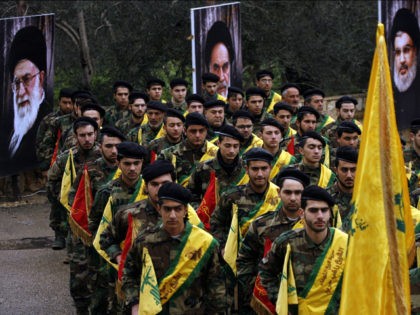
An electric grid failure described by Argentine President Mauricio Macri as “unprecedented” triggered a blackout affecting tens of millions across South America Sunday.
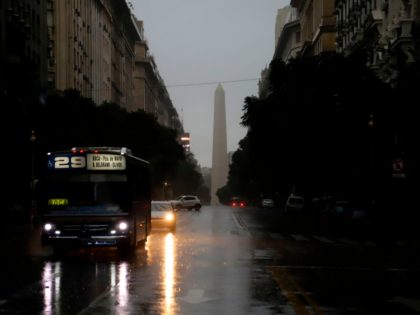
Latin America has continued its shift towards right-wing, anti-socialist leaders in the year 2018, electing new administrations in Colombia, Brazil, and Chile to change the political climate of a continent dominated by left-wing governments in the 21st century so far.
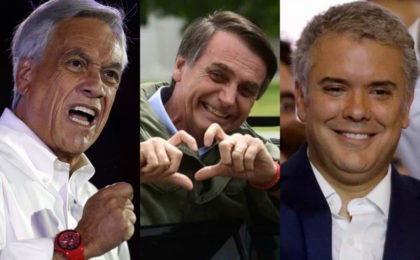
Argentine President Mauricio Macri and Chinese Communist Party leader spent much of Sunday, the day after the G-20 summit in Buenos Aires together, signing billion-dollar trade deals and exchanging gifts.
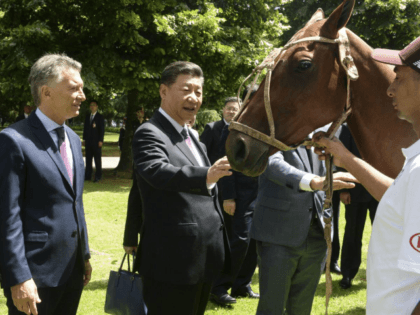
President Donald Trump and Argentinian leader Mauricio Macri held a “positive” meeting at the Friday to discuss solutions to the ongoing political and humanitarian crisis in Venezuela under the Maduro regime.
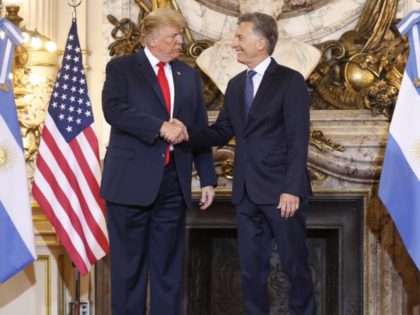
The president of Argentina, Mauricio Macri, requested before the U.N. General Assembly on Tuesday that his peers not harbor Iranian terrorists implicated in the 1994 bombing of the Argentine-Israeli Mutual Association (AMIA), the deadliest terrorist attack in the Western Hemisphere before September 11, 2001.
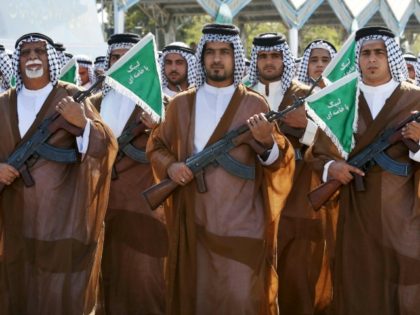
Contents: Argentina faces major financial crisis as IMF loans it $50 billion; Protests grow against new IMF deal in Argentina
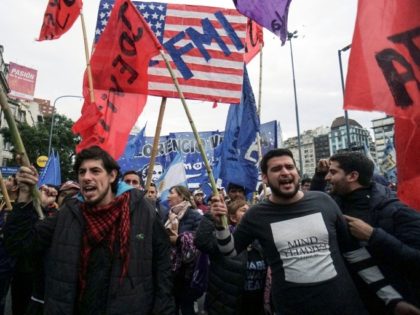
Secretary of State Rex Tillerson has left for a week-long tour of Latin America, where he will seek to promote the Trump administration’s foreign policy agenda and shore up U.S. alliances in the region.
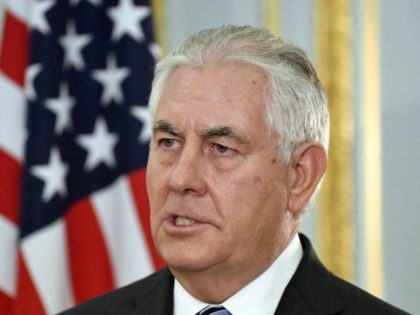
President of Argentina Mauricio Macri told reporters Wednesday that “there is no room for any gray” in the fight against terrorism, responding to the deaths of five Argentines in an act of jihad in New York City on Tuesday.
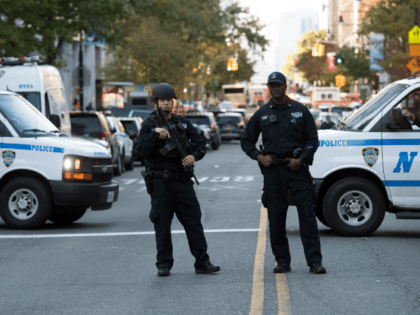
Argentina’s president Mauricio Macri has issued a new immigration decree granting law enforcement greater discretion in deporting criminal foreigners, a move that has incensed his Bolivian counterpart Evo Morales and his supporters on the far left.
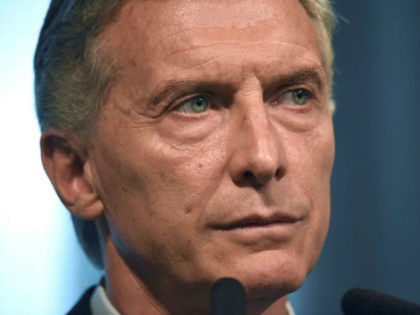
Thousands gathered in Buenos Aires, Argentina, Wednesday to commemorate the second anniversary of the killing of Alberto Nisman, a high-level prosecutor who was found lying in a pool of his own blood the night before he was to accuse former president Cristina Fernández de Kirchner of aiding Iranian terrorists.
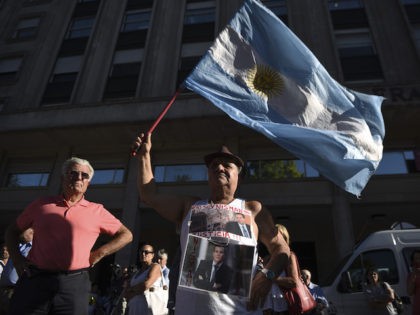
Venezuelan foreign minister Delcy Rodríguez broke through a barrage of police and economic officials in Buenos Aires, Argentina, earlier this week in an attempt to storm into a meeting of the South American trade bloc Mercosur, which has suspended Venezuela’s membership due to its repeated violations of human rights.
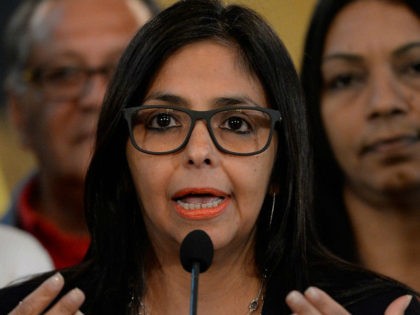
As many observers have noted, the election of Donald Trump to the U.S. presidency is the latest in a series of seismic global political shifts. Many of those have occurred oceans away, from Western Europe to the Middle East to Asia.
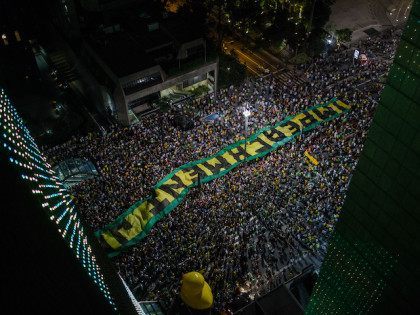
An Argentine judge officially requested that Singapore or Malaysia extradite Ali Akbar Velayati, a senior adviser to Iranian Supreme Leader Ali Khamenei and a former foreign minister, for his role in orchestrating a 1994 attack on an Israeli organization.
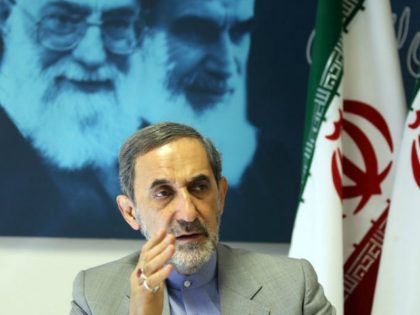
Former President of Argentina Cristina Fernández de Kirchner may be indicted in a sprawling money laundering case should the judge presiding accept federal prosecutor Guillermo Marijuan’s request to bring her into the investigation. Kirchner will be testifying regarding a separate case on Wednesday.

A small collection of leftists organized a grand display in protest of President Obama’s trip to Argentina in Buenos Aires Wednesday, holding up banners reading “Go Home Obama” and burning the American flag.
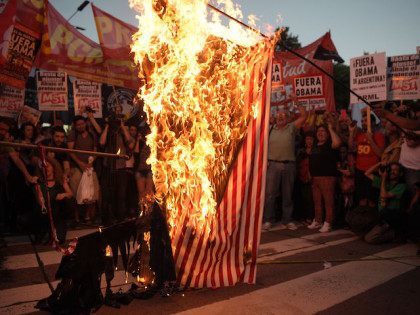
The Coast Guard of Argentina sunk a Chinese fishing ship trespassing into Argentine waters on Tuesday, after the trawler responded to calls to return to international waters by trying to ram into a Coast Guard vessel, according to the South American government.
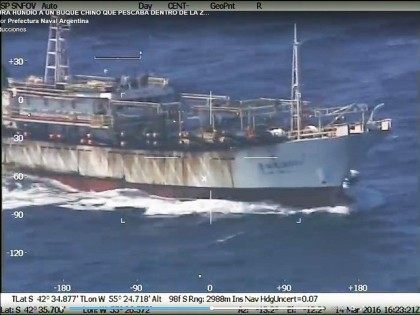
The prosecutor in charge of the investigation into the death of Alberto Nisman has deemed his death a “homicide” and seeks to bring the case to a federal court. Nisman, an Argentine prosecutor investigating Iranian involvement in a 1994 terrorist attack, was found dead of a gunshot wound to the head in his apartment in January 2015.
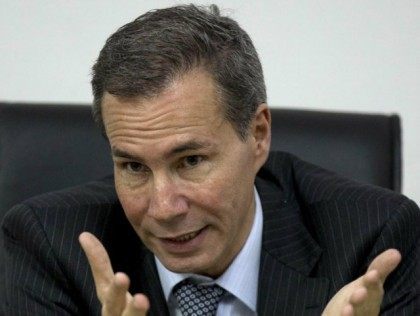
Argentina’s new president, Mauricio Macri, is fundamentally shifting his country’s economy by dumping Marxism, curing defaults and sparking a capitalist revival.
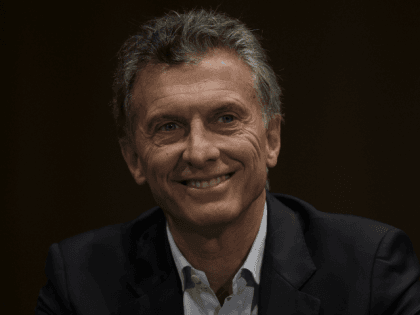
President Barack Obama confirmed on Twitter Thursday morning that he will visit the rogue communist dictatorship of Cuba in March, more than a year after implementing a series of concessions to the Raúl Castro regime that has enabled it to further oppress political dissent and create a refugee crisis in the Western Hemisphere.
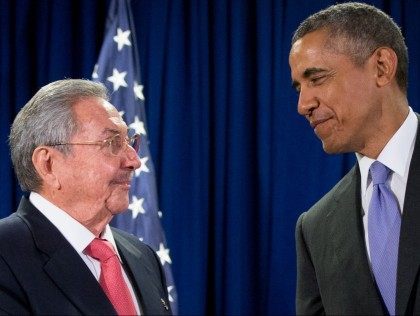
A year after police found Alberto Nisman’s body in his bathroom, the result of a gunshot wound, thousands of Argentines marched on Buenos Aires demanding justice for the prosecutor who died a day prior to going before the nation’s Congress to accuse the president of protecting Iranian terrorists.
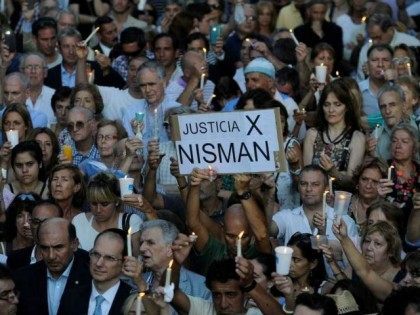
On January 18, 2015, Argentine prosecutor Alberto Nisman was found dead, lying in a pool of blood with a gunshot wound to his head. He was to testify the next day that the nation’s president and foreign minister had brokered a deal with the government of Iran to protect the masterminds of the worst terrorist attack in the Western Hemisphere before September 11, 2001. One year later, the newly elected Argentine government – which may attribute its victory largely to the Argentine people’s revulsion at the leftist incumbents’ mismanagement of the Nisman case – have few answers, but vow justice in a case some in the previous administration appeared to hope was a suicide.

Conservative candidate Keiko Fujimori is leading Peru’s presidential election with 32 percent of the vote, according to the latest national polls, signaling a potential shift rightward for yet another South American nation.
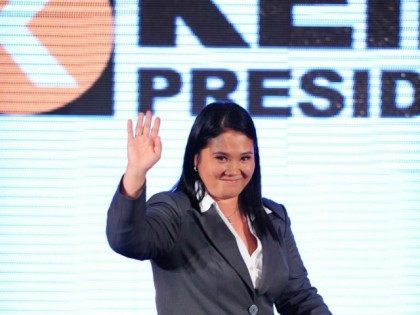
Argentine President Mauricio Macri has electrified a Mercosur trade bloc summit with the demand that Venezuela release its dozens of political prisoners or face sanctions from the group.
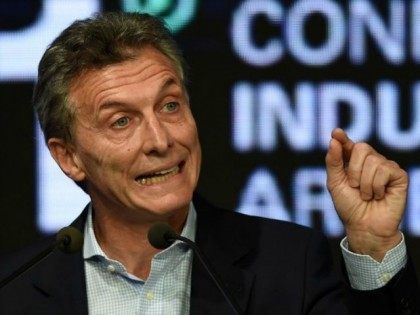
Newly released wiretap audio finds former Foreign Minister of Argentina Héctor Timerman admitting that the government of Iran “planted the bomb” at the Argentine-Israeli Mutual Association (AMIA) headquarters in 1994, the deadliest terror attack in Argentina’s history.

Newly-inaugurated Argentine President Mauricio Macri has established a special Bureau for the Investigation of the AMIA Bombing to investigate Iranian suspects linked to the 1994 terrorist attack on a Jewish center that left 85 people dead, and the shooting of a prosecutor investigating it more than 20 years later.
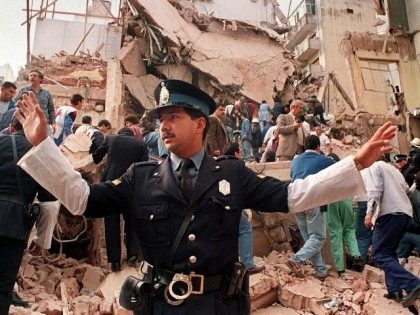
With right-wing Argentine President-elect Mauricio Macri set to assume his position as head of state on Thursday, outgoing President Cristina Fernández de Kirchner has become a major stress point in the transition, issuing multiple decrees, spending government money, and arguing over the details of the inauguration ceremony.

NEW YORK, New York – The last word spoken in Los Abandonados, a documentary detailing the multiple investigations of the worst terrorist attack in Argentina’s history and the death of the prosecutor who believed he had found the truth, is “no.”
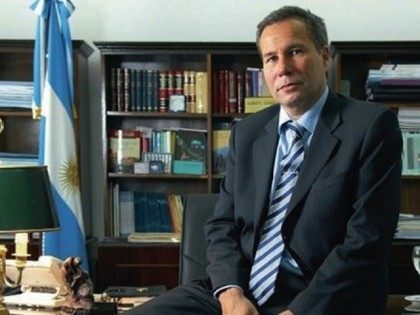
Britain’s David Cameron and Argentina’s president-elect Mauricio Macri (pictured above) agreed to “strengthen relations” between their countries after a phone call Thursday, Downing Street said. Britain and Argentina have long had tense ties due to their territorial dispute over the

The Venezuelan government has accused Argentine President-Elect Mauricio Macri of “taking orders from the United States” following the conservative head of state to-be’s proposal to sanction Venezuela economically over human rights abuses against political dissidents.
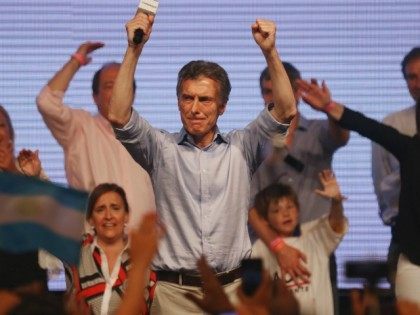
In a seismic defeat for Latin America’s left, conservative Buenos Aires mayor Mauricio Macri has been elected president of Argentina. While the transition out of leftist Cristina Fernández de Kircher’s tenure will hurt many of the nation’s questionable alliances, none appears more fragile now than the ties Kircher fostered with the Islamic Republic of Iran.
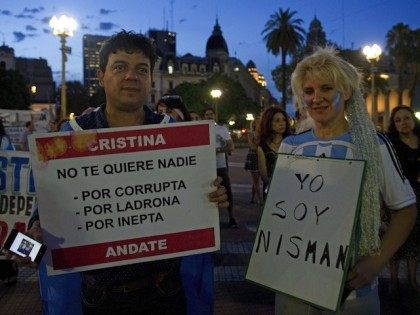
The first political shock following the Paris bombings is the Argentine presidential election of conservative Mauricio Macri over the Peronist/Marxist ruling regime.
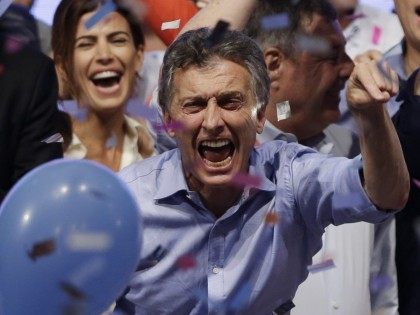
Argentina, in a stinging repudiation of outgoing leftist President Cristina Kirchner, elected a pro-market government president to take the helm of Latin America’s third-biggest economy. Conservative president-elect Mauricio Macri, fresh from Sunday’s run-off election win, promised a “marvelous” new era
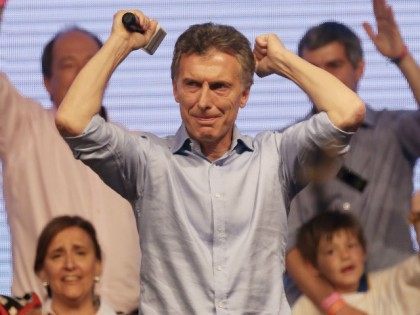
Mauricio Macri, the mayor of Buenos Aires, has forced presidential frontrunner Daniel Scioli into the first run-off vote in Argentina’s history. Marci — a pro-business, center-right candidate — nearly took the lead from Scioli, who benefits from the support of incumbent President Cristina Fernández de Kirchner.
